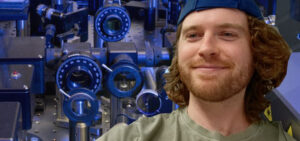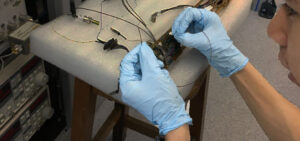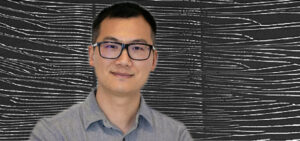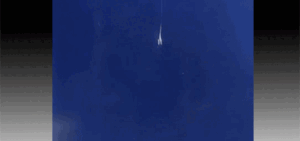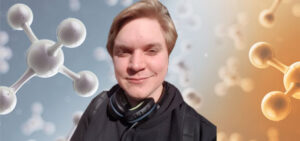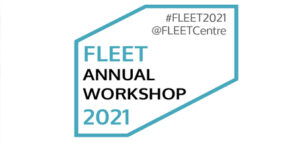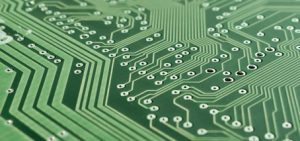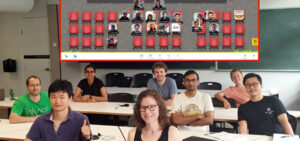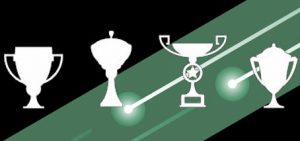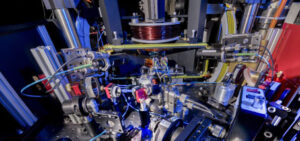Engage
See news from around FLEET, below
Catch up on all past issues of FLEET News newsletter
FLEET News
Two-quantum multidimensional coherent spectroscopy (2Q-MDCS) quantifies precise biexciton binding energy Applications in future devices based on biexcitons in TMDCs A rare spectroscopy technique performed at Swinburne University of Technology directly quantifies the energy required to bind two excitons together, providing for the first time a direct measurement of the biexciton binding energy in WS2. As well as improving our fundamental …
A group of Sydney Quantum undergraduates have recently finished a summer term with Alex Hamilton’s QED group at UNSW, gaining practical experience with quantum devices as they worked alongside FLEET and QED researchers. Over the course of their six-week placement, students pursued individual projects, developing skills in device fabrication and experimental process. The UNSW Physics Quantum Electronic Devices group investigates …
First published at EQUS: the ARC Centre of Excellence for Engineered Quantum Systems Eddies in an exotic liquid known as a superfluid merge to form large vortices, analogous to how cyclones form in the turbulent atmosphere. The new research, by a team from The University of Queensland, EQUS and FLEET will be important for emerging technological applications of superfluidity, such …
“The long divided, must unite; long united, must divide. Thus it has ever been.” The opening lines of the great Chinese historical novel Romance of the Three Kingdoms condense its complex and spectacular stories into a coherent pattern, that is, power blocs divide and unite cyclically in turbulent battle years. A good philosophy or theorem has general implications. Now, published …
In a landmark discovery, FLEET University of Wollongong (UOW) researchers have realised the non-contact manipulation of liquid metal. The metals can be controlled to move in any direction, and manipulated into unique, levitated shapes such as loops and squares by using a small voltage and a magnet. The liquid metal used is galinstan, an alloy of gallium, indium and tin, …
What FLEET content has caught the attention of the digital world in 2021? FLEET’s digital presence spans a handful of social media platforms, the FLEET research blog, and posts on external sites such as Phys.org, Eurekalert, Science Daily, Nanowerk, Materials Australia, New Electronics, Semiconductor Digest and AZO Materials. Top hits in 2021 included: • YouTube Wolfgang Ketterle FLEET talk on …
Solving complex problems, data analysis to aid decision-making, and outreach: from cold-atoms research to defence industry consultancy Hi former colleagues from FLEET! I’m Carlos Kuhn. At FLEET, I was a post-doctoral research fellow under the supervision of Prof. Chris Vale at the Centre for Quantum and Optical Science at Swinburne University of Technology, where we investigated non-equilibrium and topological phenomena …
Job hunting, working in industry, and staying focused on the path forward Hi FLEET, I’m Jesse Vaitkus. I was a PhD student under Prof. Jared H. Cole working on novel transport problems using the Non-Equilibrium Green’s Function (NEGF) method. After graduating I worked on similar problems for him until I left to begin my current job at HQS Quantum Simulations. …
Physicists at the University of Queensland have shed light upon how tiny whirlpools (vortices) get stuck to obstacles in superfluids. Superfluids are a quantum substance that can flow without viscosity and hence do not slow down due to friction. A second defining feature of superfluids is that they only support quantised rotation – the vortices can only spin with strength …
FLEET’s annual workshop is our big opportunity each year to gather together and share research outcomes and progress. FLEET2021 was a ‘hybrid’ affair – with talks and poster online and catch-ups in person, where possible – and was a welcome opportunity to celebrate survival of an difficult year, motivate each other with short research updates and highlights, and catch up …
Australian researchers have discovered that negative capacitance could lower the energy used in electronics and computing, which represents 8% of global electricity demand. The researchers at four universities within the ARC Centre of Excellence in Future Low-Energy Electronics Technologies (FLEET) applied negative capacitance to make topological transistors switch at lower voltage, potentially reducing energy losses by a factor of ten …
The 2021 Idea Factory challenged 36 early career researchers to write more effective grant applications, and learn to effectively communicate the value of their research to varied audiences. The workshop concentrated on developing researchers’ ability to pitch their research – and get funded, primarily: improving grant writing skills and confidence, customising grants for different funding bodies distilling key messages about …
Congratulations to FLEET Research Fellow Bao Yue Zhang, who received the prestigious 2021 RMIT Vice-Chancellor’s Prize for Research Excellence-HDR, recognised for outstanding research and contributions to novel sensing materials and applications in early cancer diagnosis. “Thanks to my supervisor- Jian Zhen Ou, my current & past mentors…… all my lovely team members, family, friends…..(Sorry I could not name you all) …
December’s edition of Nature Physics is dedicated to ultracold quantum technologies, including a review of spectroscopic probes of quantum gases by FLEET’s Chris Vale (Swinburne), with MIT’s Martin Zwierlein. Ultracold gases are a laboratory for precision, many-body physics – delivering a wealth of insights into collective quantum phenomena, with direct implications for nuclear and condensed-matter physics. Spectroscopic techniques can probe …


